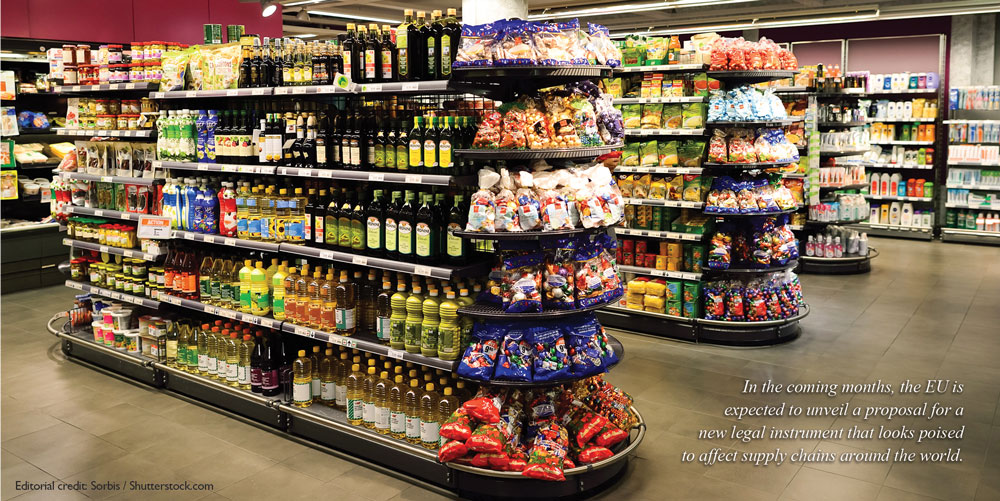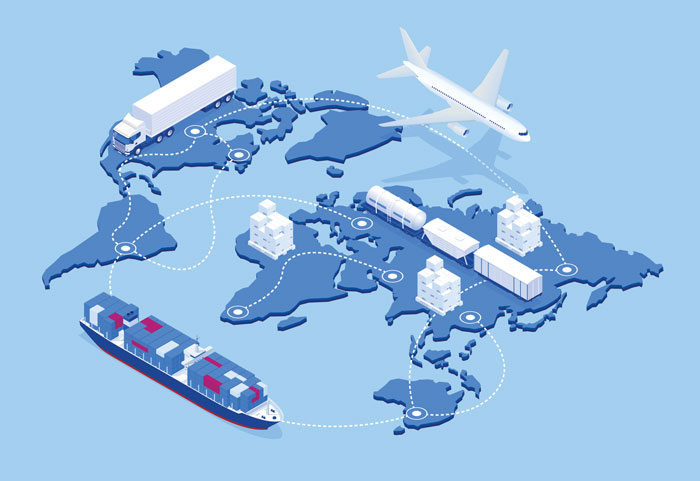



The European Union (EU) has long been at the forefront of regulatory advancement and innovative policies on trade and sustainable development, as well as the formulation of rules of commerce that directly affect third countries. The sheer breadth and depth of EU regulation are not comparable with most other regulatory environments, and often lead the way for other countries to follow suit.
To date, much of its attention has been directed at the palm oil industry – be it the increasing regulation of process contaminants like 3-MCPD; the detailed limits on nutrition and health claims, as well as food labelling; or policies to protect forests and prevent deforestation.
The conditions of market access for palm oil to the EU have further been influenced by unfounded campaigns in some member-states. These have created negative sentiments about the use of palm oil in food products and as a feedstock for biofuels, and exerted pressure for strict legislative controls.
New regulatory and legislative initiatives are now pending in the context of the European Green Deal, which sets out efforts for the EU to become the world’s first climate-neutral continent. The Farm to Fork Strategy aims for a fair, healthy and environmentally-friendly food system, while the Fit for 55 package targets policies in relation to climate, energy, land use, transport and taxation to reduce net greenhouse gas emissions by at least 55% by 2030. These are all set to apply to palm oil as well.
There are two key reasons why the Malaysian palm oil industry should take heed of these developments, and work within this environment to protect its trade interests.
Firstly, the EU has become an incredibly important ‘laboratory’ for new policies and novel regulatory approaches. It may be argued that it develops these complex measures unilaterally, but there is little doubt that its initiatives eventually do have an impact on the global trade environment.
Secondly, Malaysia’s palm oil industry – and the many people depending on it for their livelihood – continue to rely strongly on exports to the lucrative EU market. From 2010 to 2020, the EU ranged between second and third ranking as a destination for Malaysian Palm Oil. In 2020, it represented Malaysia’s second-most valuable export market for palm oil and palm-based products, with a value of around RM11.27 billion (EUR 2.35 billion).
Even the anticipated decline in EU demand for palm oil used for biofuel production and for oil palm crop-based biofuel will not see the commodity being immediately replaced. It will certainly not be offset by demand in other major markets, such as India and China, which offer relatively little additional room for expansion of their palm oil imports from Malaysia.
In addition, competition from other palm oil producing countries, as well as other vegetable oil producers, will reduce the possibility of new markets being found. Therefore, if only from a purely commercial perspective, the EU remains an important export destination for Malaysian Palm Oil.
Legislation on supply chains
In the coming months, the EU is expected to unveil a proposal for a new legal instrument that looks poised to affect supply chains around the world. Given that it will apply along entire supply chains, the proposed legislation will not only affect direct trade between the EU and a third country, but all countries along the supply and value chains.
In December 2021, the European Commission (EC) presented its proposal for an EU Directive on Sustainable Corporate Governance. This is expected to put forth detailed due diligence obligations related to social (labour) and environmental standards in corporate supply chains, as well as obligations for corporate directors to integrate mandatory sustainability criteria into their decision-making processes.

Similarly, in the context of the legislative initiative on deforestation and forest degradation – to reduce the impact of products placed on the EU market – the EC intends to ‘promote the consumption of products from deforestation-free supply chains in the EU’.
These initiatives will have implications for economic operators around the world – implications that many businesses may not yet fully realise, assess or appreciate until the rules are in place.
The impact may not be felt until, for instance, a food processing company in India requests its Malaysian Palm Oil supplier to comply with detailed social and environmental obligations, so that the Indian company’s products can be purchased by a European business that is required to comply with the new due diligence obligations.
Should Malaysia’s palm oil exporters decide to ship crude palm oil to India, for example, in order to avoid certain EU regulations, the strategy will be short-lived if the processed products containing Malaysian Palm Oil are then exported from India to the EU.
The rules on increased supply chain due diligence will mean that products exported to the EU from anywhere in the world and containing Malaysian Palm Oil would still be required to fulfil a certain number of criteria related to social and environmental standards.
In the context of the EU’s initiative on deforestation and forest degradation, additional due diligence rules that aim at ensuring that no deforestation has occurred, can also be expected. Given the ‘score’ accorded to palm oil in the EU’s previous elaborate calculation of the indirect land use change risk, it is likely that similar rules will also apply to palm oil for uses other than biofuel production.
Circumventing such rules by exporting to other markets will not be a sustainable option, as third markets would need to align themselves to EU standards and regulations in order to preserve their own trade opportunities.
Staying ahead of the curve
As the examples of the imminent due diligence obligations indicate, EU rules often affect other regulatory environments. This may, in turn, cause other countries to consider similar rules to harmonise requirements and thereby facilitate trade.
In simple terms, Malaysia and its palm oil industry should closely monitor and ‘police’ the EU market and regulatory initiatives, so as to always remain abreast of developments vis-à-vis global regulation. This is a prerequisite to preserving market access opportunities in the EU, and defending Malaysia’s rights within the international trading system should the need arise.
This would allow economic operators in Malaysia to understand in which direction the world is moving in terms of regulation – and therefore assess, influence and/or align with the standards-setting process in the EU and, ultimately, globally.

Without such coordinated and constant engagement, Malaysia will not only progressively lose the important EU market, but also be unable to understand, adapt or influence such initiatives in the EU or elsewhere. If anything, keeping up with developments in the EU would allow Malaysia to anticipate commercial and regulatory trends, and thereby remain competitive and attractive.
Merely directing its palm oil exports to other destinations may provisionally and partly compensate for losing the EU market, but will not fully relieve the Malaysian industry from complying with certain EU rules.
Therefore, Malaysia should not give up on the EU market, but rather increase its engagement in a way that allows European stakeholders to better understand Malaysia’s commitments to social and environmental standards. Such involvement will also allow Malaysia to contribute to the shaping of fairer EU rules.
Malaysia and its palm oil industry already have a long history of sophisticated engagement with EU regulators through the efforts of government agencies and industry stakeholders. Such efforts should continue and be even better coordinated and deployed.
Wan Aishah Wan Hamid
CEO, MPOC